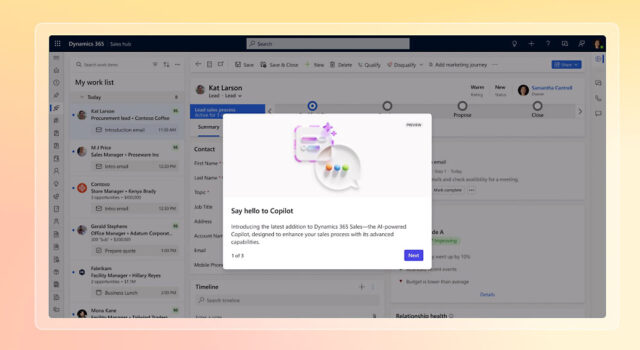Despite AI having been developed quietly in the background for decades, it exploded last year. The emergence of accessible tools that put AI in everyone’s reach meant it became widely publicised and discussed.
It also placed AI in the court of public opinion. Attitudes continue to vary about whether it’s good or bad – and especially whether it should be trusted.
However, its rise can’t be ignored, so many people are asking what they need to do to stay safe. It’s especially prevalent for businesses who house large volumes of data and need to be protected to avoid disruption. AI and cyber security is now an important discussion everyone should be having.
AI does pose some risks that companies should be savvy towards. But it also brings the opportunity to strength your cyber security defences, in a cost-effective way, by using the right tools.
We’ve explored the relationship between AI and cyber security, including the dangers to look out for and how to utilise it to best protect your business.
Why should you care about AI and cyber security?
A lot of businesses are already implementing AI into their operations or finding useful ways to leverage it more.
Yet concern about AI still looms. Regulation around AI is a work in progress, with questions about how it will be policed. There’s also concern about the human impact and security implications.
It’s perhaps not surprising, then, that research from KPMG found that 73% of employees saw AI as having significant risks. Only 55% feel comfortable using it to automate tasks and support managerial decisions.
These perceived risks may put some people off implementing AI fully. But when everyone is considering the impact of AI on productivity, delaying AI in your business could cause you to fall behind competitors.
The KPMG report also highlights the benefits people hope to gain through AI. 85% of people believe AI will boost efficiency, effective, innovation and resources. avoiding it means missing our on those rewards.
AI will continue to grow, so knowing how to use it correctly and protect yourself from risk now will get your business ahead of the curve.
And AI shouldn’t just be seen as a threat against your business – it’s a support tool. In a survey of businesses intending to utilise AI, 35% intended to use it to improve their cyber security practices.
The risks of AI on your cyber security (and how to protect yourself)_
The most significant risk associated with AI is how your staff use it. In 2023, open-for-all tools like ChatGPT and Bard emerged, and it’d be foolish to assume your staff aren’t using them.
However, these open models learn from the prompts you input, and there’s a chance they could regurgitate them for other users. If you share confidential information, like customer data or business intel, you risk leaking it to the world. And this results in data breaches, or can help hackers break into your systems.
Cyber criminals can leverage AI for their activities. For example, they can use AI to craft deceptive phishing emails or build advanced malware. It can even help them manipulate data and impersonate others, making it harder to tell what’s real and what’s a scam.
However, you can protect your organisation against these risks with a few simple steps:
- Don’t share confidential data. Make sure that nobody in your organisation is putting private data into open tools like ChatGPT. If they are sharing data, this should always be anonymised. Even if it is anonymous, it’s still crucial to be mindful of any private information held and tread carefully. Opt for an ‘if you’re unsure, don’t’ policy, or at the very least recommend they get insight from your designated GDPR officer.
- Educate employees. Alongside advising staff to protect confidential data, educate them on general IT security. Common examples include checking email addresses to make sure they’re from who they say they are and never clicking links in emails they’re uncertain of. Phishing emails are becoming harder to spot, so also encourage staff to report suspicious emails so the whole organisation can be warned.
- Utilise safe AI tools. Not all AI tools are made the same. Some offer better protection, like Microsoft Copilot. It includes commercial data protection to keep organisations while enabling staff to use AI workplace chats freely. Do your due diligence to check how secure any AI tool is before you implement it across the business.
- Invest in anti-security. Anti-security software is essential in detecting and blocking threats. It can also help you to filter out spam emails before they reach employee inboxes. Make sure you have a solution that covers the whole workplace and offers optimum protection. Tools like Microsoft Defender can offer comprehensive protection.
- Use multi-factor authentication and strong password practices. By incorporating hard-to-guess passwords and identification verification, you will drastically reduce the chances of being hacked.
By following these practices, you’ll make your organisation’s IT impenetrable – even when cyber criminals utilise AI.
How AI can boost cyber security_
Although AI does have a perceived risk, it can also be hugely beneficial in improving your cyber security practices.
You can use AI solutions to detect threats, like viruses or malware targeting your systems. It may also be used to build predictive models to determine risk based on historic data, so you can create a strategy accordingly.
Other security protocols AI can help with includes:
- Analysing network traffic and data to identify and negate bot patterns.
- Improve incident response, with faster, more accurate resolutions.
- Authenticate users through biometrics, contextual information, and use behaviour data to accurately verify their identity.
Given the power of AI to enhance security, many tech companies are already putting it to use. For example, Microsoft created their Security Copilot to offer protection across Microsoft and third-party apps. It actively summarises incident information, reports on potential issues and supports faster responses to minimise the threat. By leveraging AI power in this way, businesses can find themselves better protected than before.
What to do now with AI cyber security_
With the risks and opportunities posed by AI, what should you do now to protect your organisation? Here are our tips:
1. Do a security audit of your AI risks.
Most organisations will be exposed to AI risks in the form of phishing emails and impersonation. It’s important to be aware of these and have stringent practices in place to protect yourself.
However, you also need to be aware of the risk associated with any AI tools you use. For open AI, this means losing control of any data you input. There may be further dangers involved in any AI tool you use, so spend time understanding how it works and any security implications. This will allow you to decide whether your business should permit it and make an adequate internal AI policy that protects you.
2. Ensure everyone is on board.
Once you’ve determined the best AI practices for your business, make sure everyone is on board. If that includes asking people not to use specific tools or avoid inputting information, you should communicate this clearly. You might choose to circulate an AI guide or run a training session focused on it.
By keeping everyone on the same page, you can avoid something slipping through the cracks and causing a breach.
3. Consider AI tools to enhance cyber security
If cyber security is a priority in your business (and it should be!), you’ll want to level it up. AI can help.
Look into the AI security solutions available on the market. If they offer improved protection, it will be worth the investment – especially given the stress and disruption a breach can cause.
Remember that AI is constantly growing in this area, so keep up to date with new developments and product updates.
4. Find a trusted IT partner to guide you
Cyber security needs to be extensive. You need highly technical skill to manage it, which many businesses simply don’t have internally.
Working with a trusted IT partner can ease the strain and offer you expert security guidance. This’ll give you peace of mind without excess effort.
Remember to find a partner who has security accreditation and is up to date with the latest trends – including the advancement of AI.
Bring your AI and cyber security safely together_
Cyber security is crucial to the safe operation of any business. If done well, it’ll protect you against all manner of hacks and threats, each of which could amount to financial repercussions, disruption and compliance breaches.
By taking the time to understand the good and the bad of AI and develop a security strategy that responds to it, you’ll be able to protect your organisation long-term. As the AI tidal wave continues to come in, you’ll make sure you embrace the opportunities and avoid the losses.
Infinity Group are a leading cyber security consultancy. Our expert team of consultants look at all areas of cyber security, from identity and access management to a fully managed Security Operations Centre.
Leveraging our experience, we will prepare your business for the risks and opportunities presented by AI.
Our AI Readiness Assessment will help you determine if your organisation has a sensible approach for utilising AI, ensuring you get maximum productivity benefits and are suitably secure.
Book your assessment today – and prepare to safely propel your business forward.




